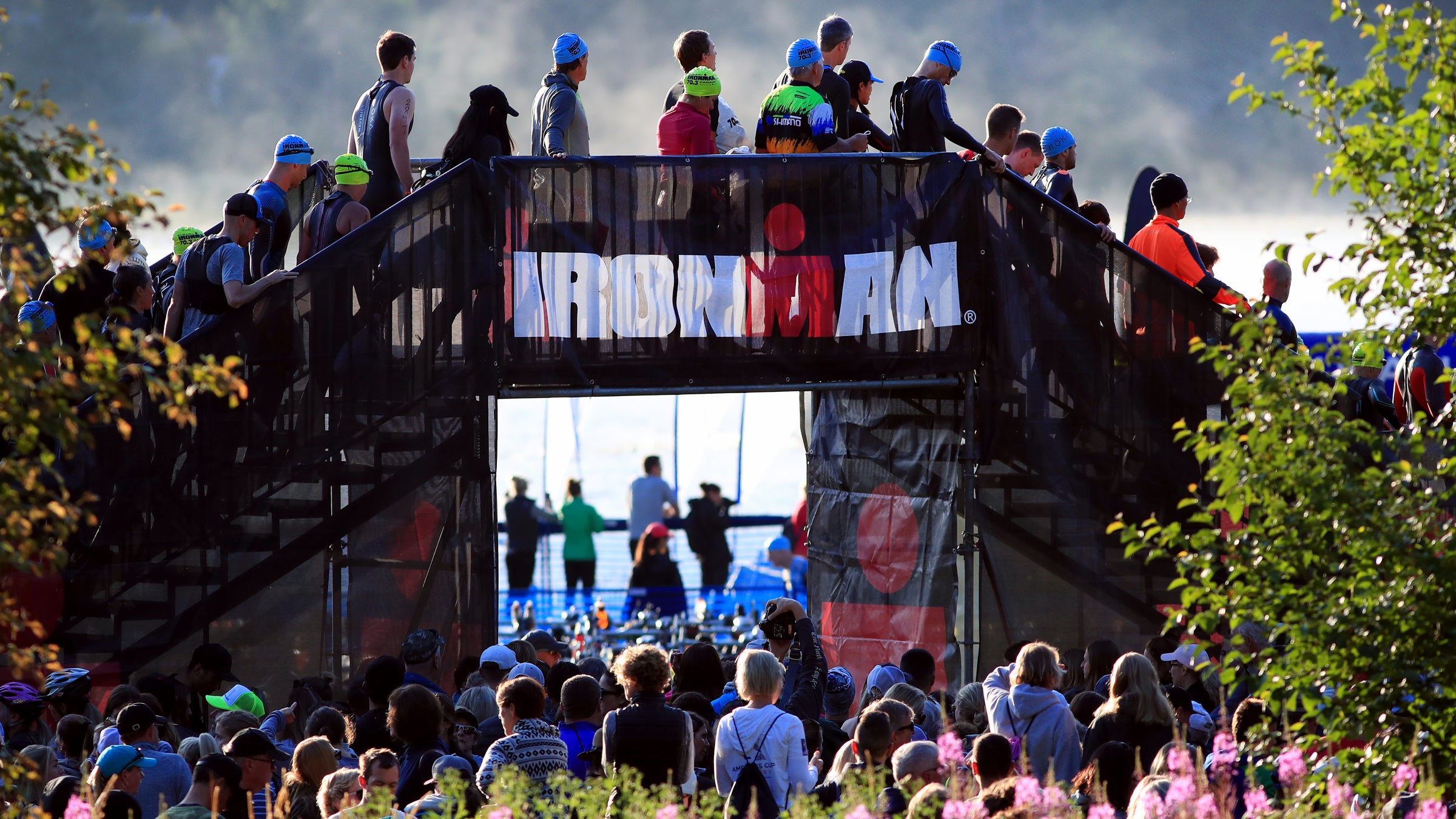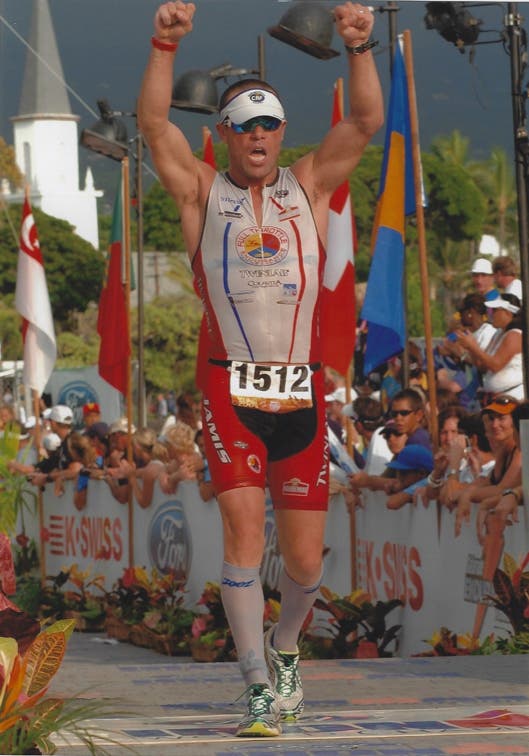A Conversation With the Man Behind the Ironman Acquisition: Jesse Du Bey

Athletes line up for the start of an Ironman event. (Photo: Tom Pennington/Getty Images)
In March, Wanda Sports Group announced the sale of Ironman for $730 million. The not-so-secret person behind that acquisition: Jesse Du Bey, the same person who helped bring Ironman to Providence Equity in 2008 and then managed that investment for five years. Jesse is the founder and managing partner of Orkila Capital, who partnered with Advance for the Ironman purchase. (Advance is a private, family-held business largely focused in media and entertainment, with major stakes in Discovery, Reddit, and Charter Communications. Orkila, a growth equity firm, was a co-investor in the Ironman deal.)
I had a chance to chat with Jesse about the acquisition and the state of Ironman business. This is an edited Q&A of his responses.
Barry Siff: You were heavily involved with the ownership of Ironman when it was under Providence Equity, prior to being sold to Wanda. How has the brand changed since you were last involved?
Jesse Du Bey: The business of Ironman has evolved significantly since the Providence days, particularly the globalization of the various series, the significant growth in triathlon, running, mountain biking, and trail running, and the integration of global sponsorship, merchandise, digital, and other areas. But—to your question—I believe the brand Ironman has not changed its core values or meaning at all. I still believe that Ironman is the most inspiring sports brand in the world and that its core values of inclusion and perseverance haven’t changed and will never change. What has changed is that the brand is accessible to many more people in many more parts of the world. And that is energizing.
BS: The pandemic has certainly affected your events dramatically. It seems like 2021 will be another off or challenging year participation-wise, and sponsor revenues should be equally challenging. We have already seen personnel reductions at Ironman; can we anticipate any other notable changes to try and stabilize financially?
JDB: COVID is the most sustained, most catastrophic, global dislocation to hit the event sector probably ever. I have a lot of friends in this industry and know that COVID will make it very hard for many organizations to continue to operate unless government industry rescue programs are created. And, of course, this support should focus on the thousands of small-to-medium size businesses in sports, music and cultural events. We are seeing these kinds of programs in many European countries, and they are going to help preserve as many of these culturally important companies and events as possible. The events sector is an expression of culture and an important way we celebrate the things that make life worth living. It would be terrible to let a temporary dislocation permanently erase many of the grassroots organizers from the industry.
As for Ironman, while the company at the moment has little revenue and high fixed costs, it thankfully has a strong balance sheet and patient and committed owners in Advance and Orkila.
BS: Where do you see the biggest opportunities ahead? Looking out 3-5 years, what might we anticipate? More growth in the cycling, running, maybe other endurance categories?
JDB: I see growth opportunities across the board. Even before COVID caused all of us to think more about investing in our health and wellness, the endurance sector was experiencing a solid growth tailwind globally. I believe coming out of COVID we will see a historic increase in participation in endurance sports, as people globally recommit to their physical and mental wellness. I do think the company will drive strong growth in numerous endurance event areas, including all those you mention.
But from a business model perspective, I think Ironman’s next major evolution relates to its relationship with athletes. From 1978 until today, Ironman’s relationship with athletes has primarily been about race day—which will always be an essential relationship element. But my experience as an athlete has been that the real work is in the training grind—the preparation to have your best day on race day is where the physical and mental fitness is earned. Through connected fitness tools, and content and data initiatives that help athletes prepare for and learn from race days, we believe Ironman can help athletes get more physically and mentally fit. And not just to develop fitness for racing, but to develop more fitness and tools for lifelong health and wellness.
If we can succeed in this connected fitness initiative, Ironman will complete its evolution from an event company based on an inspirational lifestyle brand to an inspirational lifestyle brand that offers year-round tools to help athletes compete their best at healthy living.
BS: Can you comment on the advent of the Professional Triathletes Organization?
JDB: As you know Barry, I have always held the belief that triathlon is a better sport with more event organizers. You and I have talked privately about my admiration for Felix [Walchshöfer, CEO of Challenge Family] and Challenge, as well as many other organizers globally. These days we are rightly talking about flattening the curve [of COVID], but the broader curve that we also need to flatten globally is the curve of increasingly unhealthy lifestyles that drive higher rates of critical disease and mental health issues. The more people out there helping to organize events that inspire people to try something new and invest in their physical and mental health, the better. As I understand it, the main business of the PTO currently is as a race organizer, which helps pros earn more money and recruit more athletes into our great sport. We are not troubled by competition and I hope their races will help grow our sport.
—
Barry’s footnote: Jesse Du Bey is not just a brilliant investor, he is also an elite triathlete. At the Ironman 70.3 St. Croix in 2010, where we first met, Jesse was the top age-group athlete, but turned down his Kona slot. He had achieved his Ironman-distance PR of 9:28 in Kona the year before. While he has not raced since 2010, as he turns 45 next year—new age group—I would not be surprised to see some type of comeback.
After speaking with Jesse, and then hearing a podcast with Ironman CEO Andrew Messick, I think we can all look toward more activity by Ironman in the “connected fitness” world.

Barry Siff is coming off eight years of triathlon leadership, having been President of USA Triathlon and sitting on the World Triathlon (ITU) Executive Board for six of those years. He began his triathlon lifestyle in 1986 and continues to train and race while living in Tempe, AZ with his wife, Jodee, and awesome dog, Xander.